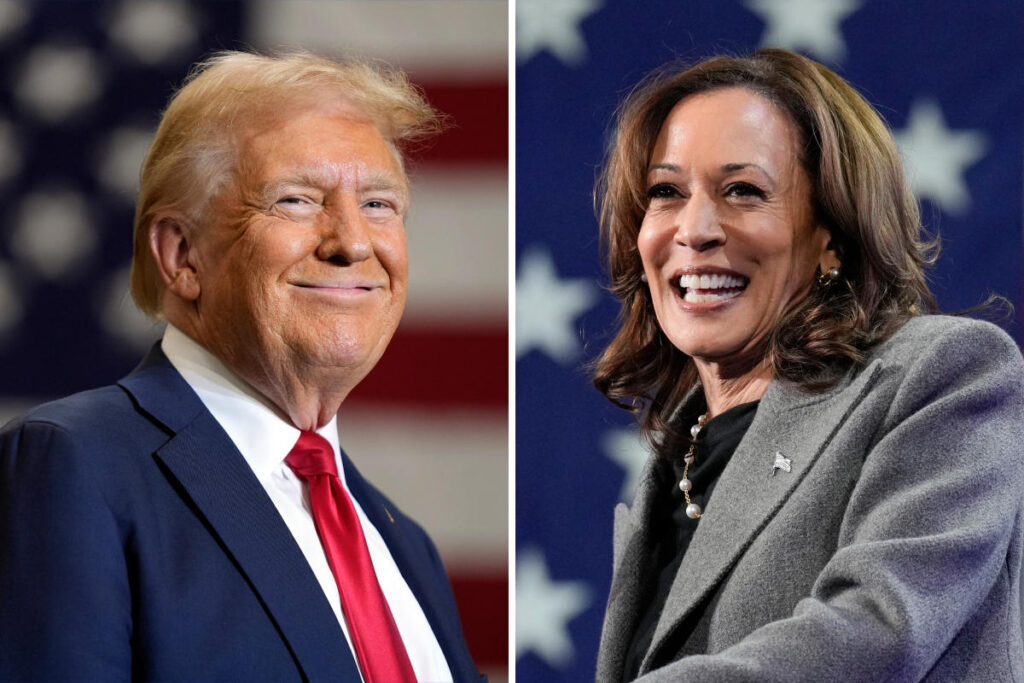On a pivotal day in the 2024 presidential campaign, Donald Trump and Kamala Harris are set to traverse swing states, with their paths crossing in Wisconsin. Trump will rally supporters in Green Bay alongside retired NFL quarterback Brett Favre, a figure who has significant local recognition. Meanwhile, Harris is anticipated to attract a youthful audience in Madison, featuring performances by popular artists, including Mumford & Sons, Gracie Abrams, and band members from The National. Both candidates are keenly aware of the importance of Wisconsin, a crucial battleground state that could determine the outcome of the election, as their campaigns ramp up efforts just days before voters head to the polls.
In her campaign speech the day before, Harris sought to remind Americans of the challenges faced during Trump’s presidency, positioning herself as the candidate who will contrast that experience by offering a new path forward. Her message of inclusivity resonated as she stated her intention to represent all Americans, regardless of voting choices, marking a significant moment in her campaign where she differentiated herself from President Joe Biden’s comments. This moment highlights her pursuit of outreach, particularly to undecided or GOP voters, amid increasing pressure to establish her unique identity as a candidate and to move beyond ties to Biden’s administration.
Controversy erupted following Biden’s remarks about Trump supporters, where he labeled them as “garbage” in response to inflammatory comments made at a Trump rally. Harris responded to this incident by emphasizing her disagreement with any form of criticism directed at individuals based on their voting preferences, framing her campaign around unity rather than division. Tim Walz, the Democratic vice-presidential nominee, also defended Harris’s message, asserting that Biden’s comments did not undermine her calls for inclusivity. Instead, he reiterated the need to confront the damaging rhetoric associated with Trump, suggesting that their campaign remains committed to unity and healing the divided political landscape.
Both candidates are preparing for a thorough campaign strategy, with immediate plans for dual events in the state intended to frame the closing arguments of their respective campaigns. Trump’s upcoming rally in Milwaukee is positioned to attract significant attention as he continues his critique of Harris, calling her a “trainwreck” and presenting her past as disqualifying for a presidential candidate. This aggressive posturing indicates Trump’s strategy to galvanize his base and reaffirm his appeals to supporters by emphasizing a narrative of strength and decisiveness, contrasting Harris’s approach of unity and inclusion.
Harris’s recent speeches have been focused on drawing clear contrasts between her vision for the future compared to Trump’s personal grievances and obsession with vendettas. She presents herself as a candidate willing to prioritize the nation’s needs above party lines, a theme she has reiterated amidst the charged political atmosphere. This attempt at a unifying message may resonate with voters looking for stability and a sense of collective progress after a tumultuous political period marked by personal insults and divisive tactics.
As the election date approaches, both Harris and Trump are reinforcing their platforms and fortifying their support bases in battleground states like Wisconsin, culminating in just one week before voters make their decisions on November 5. The stark contrasts between the candidates’ visions for America not only outline the choices voters will face but also solidify the camp’s strategy to engage and mobilize supporters in the quest for the presidency. The intensity of the campaign promises a climactic end to the election cycle and positions both candidates in a narrative that underscores their competing claims to leadership and the future of the nation.

